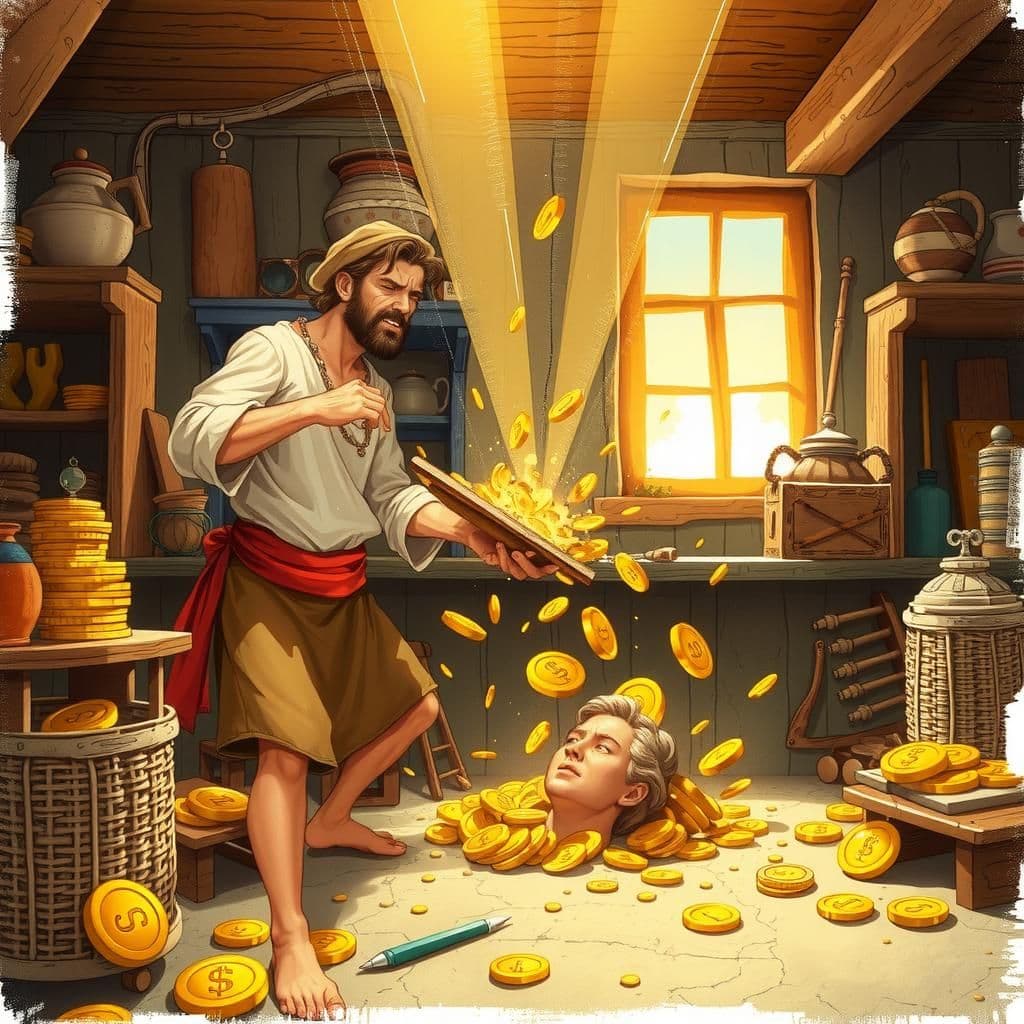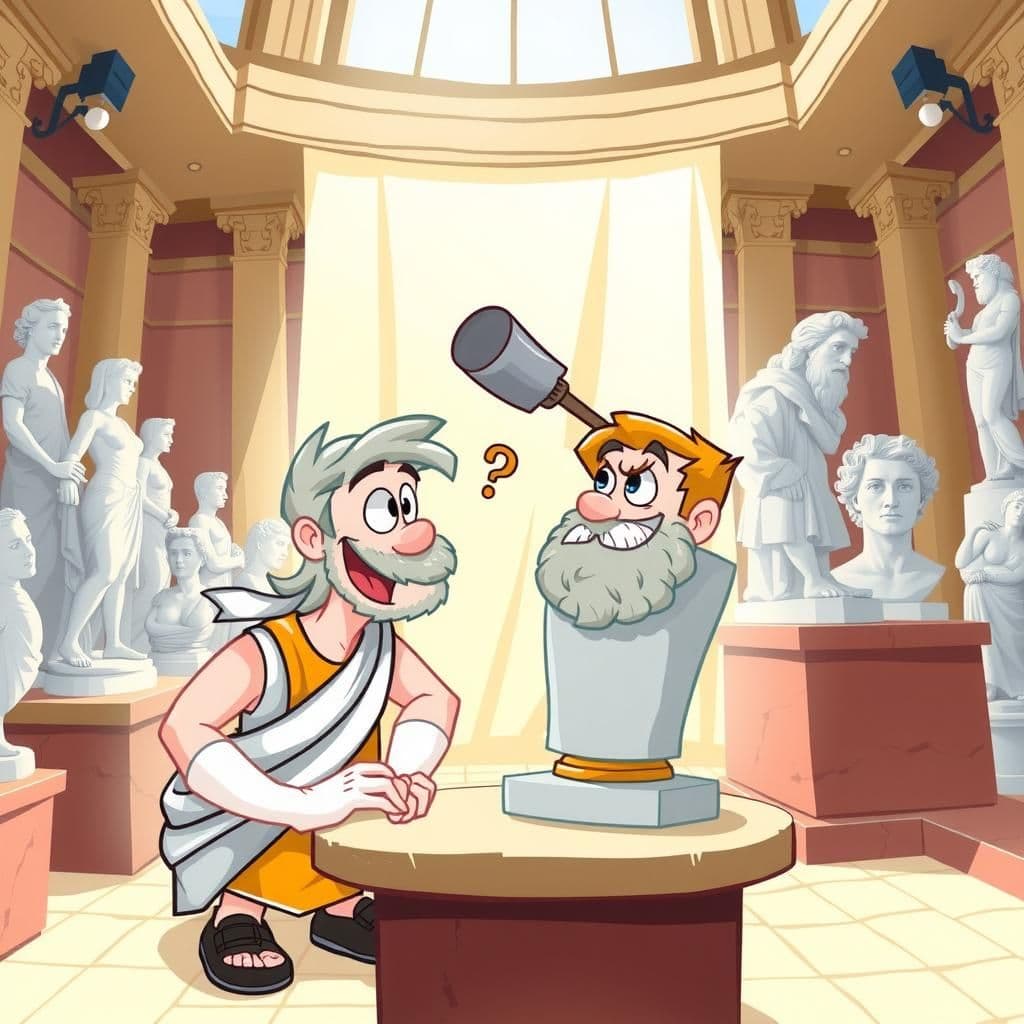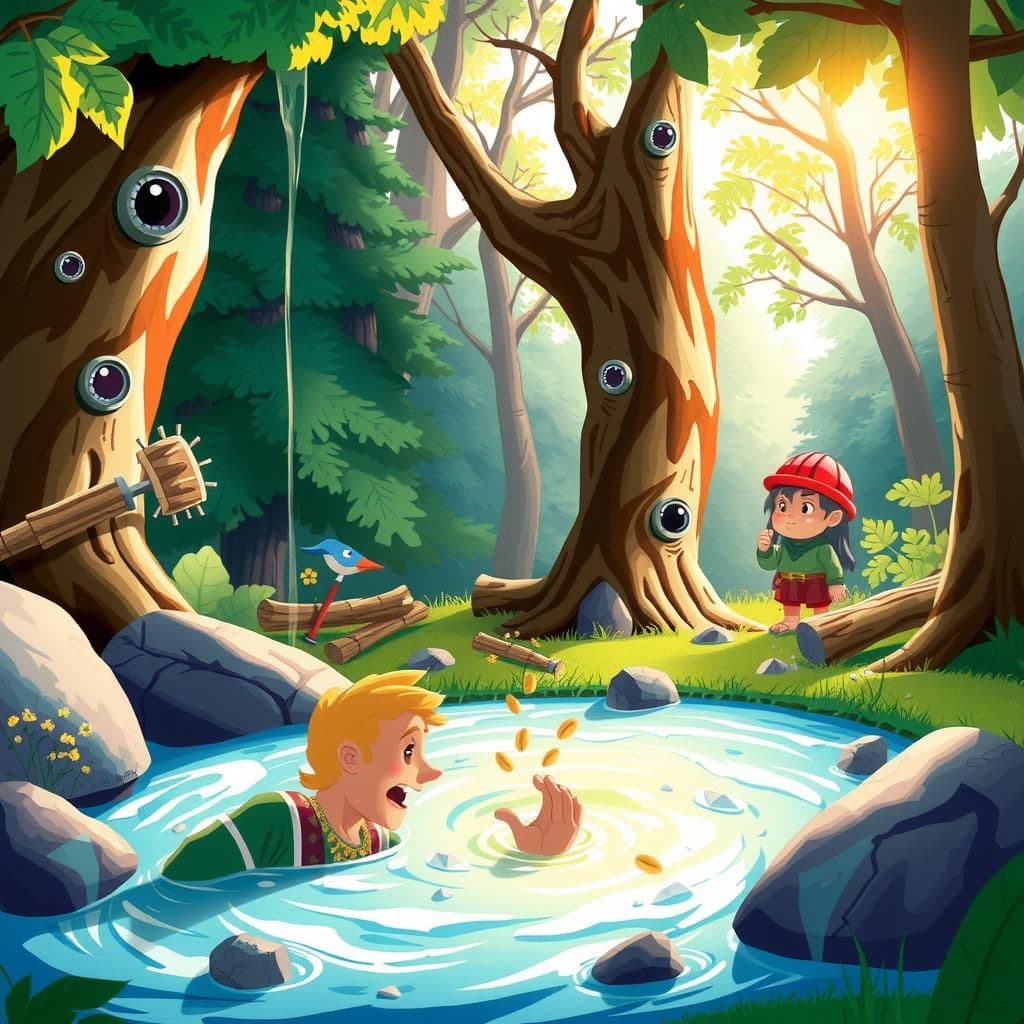The Image of Mercury and the Carpenter

Story Summary
In this captivating moral story, a poor carpenter worships a wooden image of Mercury, seeking wealth but only facing increasing poverty. In frustration, he destroys the idol, which unexpectedly releases a stream of gold, revealing the ironic lesson that sometimes life-changing stories with moral insights emerge from unexpected actions. This concise moral story underscores the idea that mistreatment can lead to rewards, providing a thought-provoking lesson about the nature of value and respect.
The Carpenter and the Idol
Once upon a time, there was a very poor man who worked as a carpenter. This man owned a wooden image of Mercury, the Roman god of commerce and trade. Each day, he would make offerings to the idol, fervently begging it to grant him wealth. However, despite his persistent entreaties, the carpenter found himself becoming poorer and poorer.
Frustrated and angry at his continued misfortune, he finally decided to take drastic action. In a fit of rage, he removed the image from its pedestal and hurled it against the wall. To his astonishment, when the idol's head was knocked off, a stream of gold poured out from it. The carpenter quickly gathered the gold, his eyes wide with disbelief.
"What a contradiction you are!" he exclaimed. "You are utterly unreasonable. When I honored you, I received no benefits. Yet now, in my moment of maltreatment, I am suddenly blessed with an abundance of riches."
In that moment, the carpenter realized that sometimes, the things we hold dear may not respond to our expectations, and that fortune can come from the most unexpected places.
Click to reveal the moral of the story
The story illustrates that sometimes true value and rewards come from unexpected actions rather than traditional devotion or expectations.
Historical Context
This story reflects themes found in ancient fables and folklore, particularly those associated with the tradition of moral tales in Greco-Roman culture, where deities like Mercury represented wealth and commerce. The narrative echoes the motif of the "ungrateful idol," which has parallels in various cultures, including Aesop's Fables and later retellings in medieval literature, highlighting the irony of devotion versus the unexpected consequences of disillusionment. The carpenter's experience serves as a commentary on the nature of faith and the often unpredictable relationship between worship and reward.
Our Editors Opinion
This story highlights the idea that sometimes true value and rewards come from taking bold actions rather than passively seeking help or waiting for luck. In modern life, this can be reflected in a scenario where a person dissatisfied with their stagnant job decides to pursue further education or start a passion project; through their initiative and risk-taking, they ultimately find greater success and fulfillment than they ever would have by simply hoping for a promotion.
You May Also Like

The Mountains in Labour
In this moral story, the Countrymen observe the Mountains seemingly in distress, with smoke, earthquakes, and crashing trees, leading them to anticipate a catastrophic event. However, their fears are unfounded when the source of the commotion turns out to be a tiny mouse emerging from a gap in the Mountains, illustrating the lesson that sometimes great expectations yield little results. This tale serves as an example of the short stories with moral that resonate with both children and adults, reminding readers of the value of perspective in the face of alarm.

Mercury and the Sculptor
In "Mercury and the Sculptor," Mercury, disguised as a man, visits a sculptor to assess his esteem among mortals. After inquiring about the prices of Jupiter and Juno's statues, he humorously suggests his own statue should be valued higher, only for the sculptor to quip that he'd throw it in for free if Mercury buys the other two. This concise moral story highlights the importance of humility and the sometimes inflated self-worth that can lead to humorous situations.

Mercury and the Woodchopper
In "Mercury and the Woodchopper," a woodchopper loses his axe in a deep pool and seeks help from Mercury, a thoughtless deity. As Mercury dives in to retrieve the axe, the surrounding trees become loosened and fall, illustrating an important lesson found in many inspirational short stories with moral themes: the consequences of impulsive actions. This tale is a part of the top 10 moral stories that teach children valuable lessons about patience and consideration.
Other names for this story
Mercury's Hidden Wealth, The Carpenter's Unexpected Fortune, Breaking the Idol, From Despair to Gold, The Riches of Rebellion, The Carpenter and the Golden Idol, Wealth in Disguise, The Paradox of Mercury
Did You Know?
This story highlights the irony of human expectations, suggesting that sometimes true value or reward comes not from blind devotion but from a willingness to challenge and confront the very things we believe will bring us success. The carpenter's realization reflects a deeper commentary on the nature of faith and the often unpredictable relationship between effort and reward.
Subscribe to Daily Stories
Get a new moral story in your inbox every day.